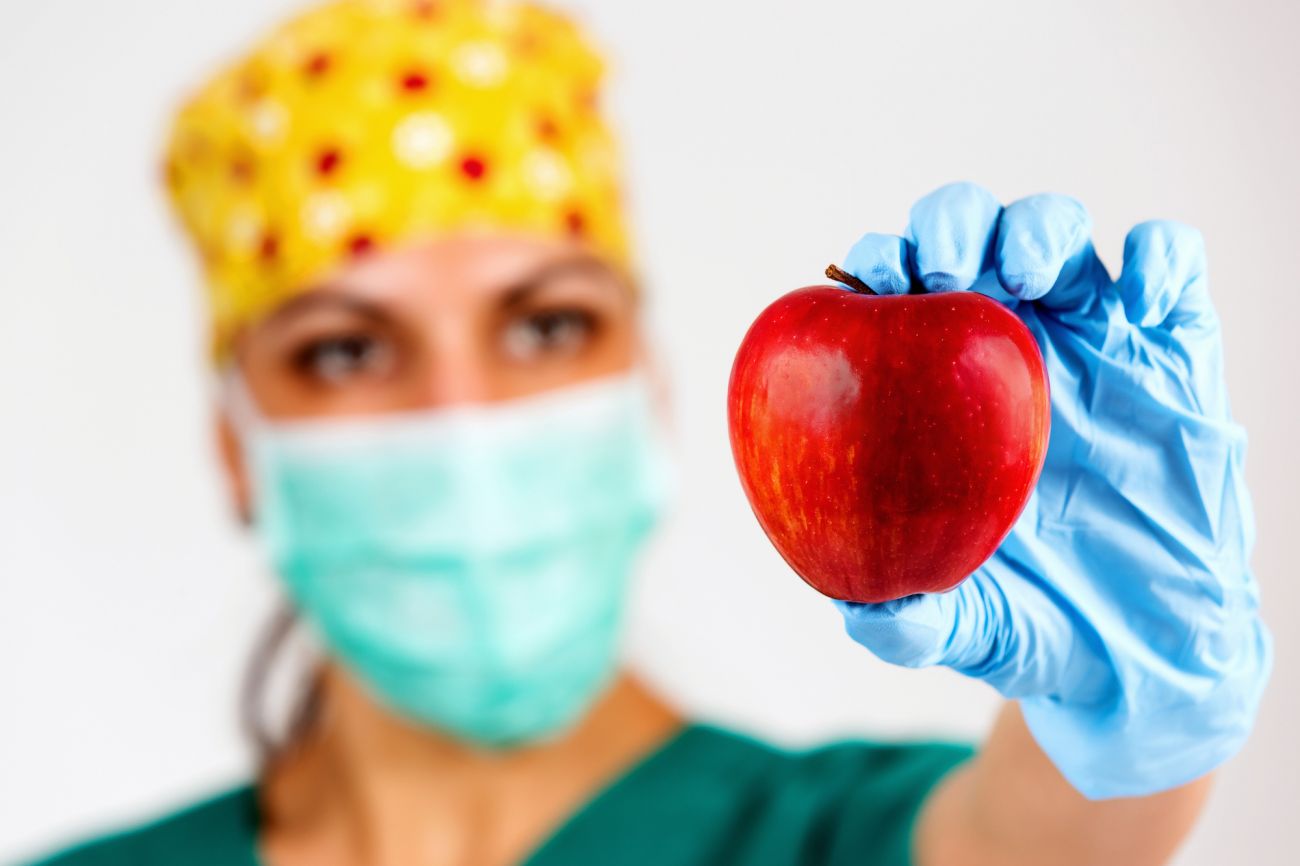Chemotherapy, radiation, surgery and other cancer treatments can be hard on your body. Fortunately, making healthy food choices can help cancer patients feel better before, during and after treatment. Focus on balanced eating and avoid extreme diets, as they may leave you short on key nutrients.
Making Healthy Food Choices
When you are feeling well, and have not been ordered by a physician to restrict your diet for any medical reason, you should aim to make food and beverage choices that align with the current Dietary Guidelines for Americans. The number of servings for each food group will vary based on your individual energy needs. The general ranges of daily servings for most adults (based on a 1,600-2,200 calorie diet) are:
- 2-3 cups of vegetables
- 1-2 cups of fruit
- 5-7 servings of grain-based foods (at least half should be whole grain)
- 2-3 servings of dairy (fat-free or low-fat milk, yogurt, cheese)
- 3-4 servings of protein (lean meat/poultry, seafood, eggs, legumes, nuts)
- 40-65 grams of fat (oils instead of solid fats)
It's also important to choose foods low in sodium and drink water instead of sugary drinks.
Benefits of a Healthy Diet
The nutrient needs of cancer patients vary from person to person. A clinical dietitian can help you identify your nutrition goals and plan ways to help you meet them. Eating well while you’re being treated for cancer might help you:
- Feel better
- Keep up your strength and energy
- Maintain your weight and your body’s store of nutrients
- Better tolerate treatment-related side effects
- Lower your risk of infection
- Heal and recover faster
Never miss another Cancer Talk blog!
Sign up to receive our monthly Cancer Talk e-newsletter.
Sign up!Supplements and Herbal Products
Aim for healthy foods instead of dietary supplements and herbal products. Healthy, whole foods are the best way to get the nutrients you need. Plant-based foods (fruits, vegetables, beans, legumes and whole grains) provide fiber, vitamins, minerals and phytochemicals that cannot be duplicated by a supplement. Some dietary supplements and herbal products may actually interfere with cancer treatment, so it's critical that you speak with your physician before taking anything.
When you feel well, eat well. But, if you are experiencing side effects related to your treatment and you are unable to follow recommendations for healthy eating, contact your dietitian. Your dietitian is the best person to provide recommendations and alternatives to help you meet your individual nutrient needs.



